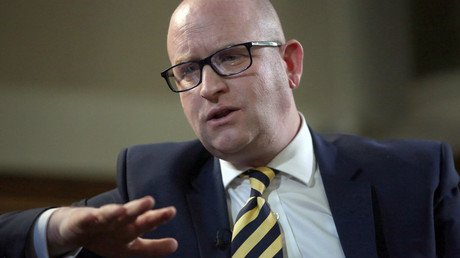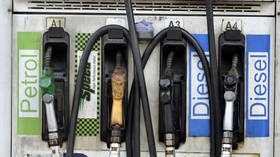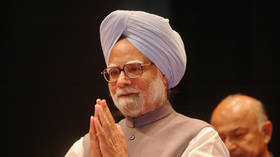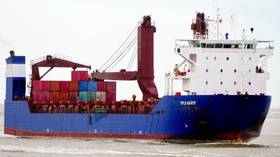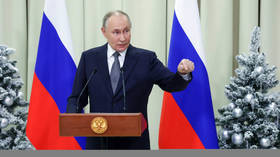UKIP says Britain should slash its foreign aid budget
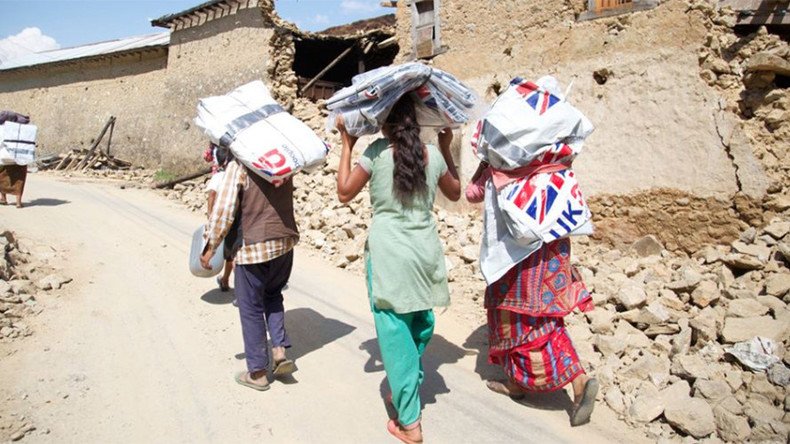
The UK Independence Party (UKIP) is calling for an 80 percent cut to the foreign aid budget so the money can be spent on national infrastructure.
Britain currently spends around £12.5 billion ($15.5 billion) a year supporting developing and war-torn countries like Pakistan, Afghanistan, Somalia, and South Sudan.
But UKIP says the aid is inadequate, does not truly alleviate poverty, leaves those receiving it dependent on support, and perpetuates bad government.
A paper published by the party this week outlines the downfalls of the system, arguing that much of what is spent in foreign aid actually ends up in the pockets of charitable organizations such as Oxfam and the Fairtrade Labelling Organisation.
“The UK government is committed to spend 0.7 percent of [gross national income] on overseas aid. This has resulted in a significant real-terms increase in the aid budget in recent years, even as other departmental budgets have been cut, financial pressure on the NHS (National Health Service) and social care services has grown, and the annual budget deficit is still far from eliminated,” the document, authored by the party’s speechwriter Simon Gordon, read.
“This raises the question: is prioritizing international aid over public services at home the right use of public resources?”
Britain’s humanitarian spending has doubled since 2011.
UKIP believes the budget should be cut to £2.5 billion per year and limited to intervention in situations of natural or humanitarian emergency or eradicating diseases.
Almost £1.3 billion was spent in 2015 on supporting humanitarian efforts in Syria and Yemen – a sharp rise on the £422 million spent in 2011.
UKIP insists the foreign aid budget is based on “inaccurate assumptions,” and that investing in trade relations would offer a better deal for both parties.
@paulnuttallukip at Bolton Conference .
— Cllr.Brian Silvester (@CllrBSilvester) February 17, 2017
Only @UKIP will slash foreign aid and spend extra £3bn a year on NHS.
Charity begins at home. pic.twitter.com/CXopQd2KD4
“An increasing body of evidence suggests that more aid is not the best path to prosperity for developing countries but that more trade is,” the party’s foreign aid spokeswoman, Lisa Duffy, said.
“For too long, our government has prioritized ineffective aid spending over its basic obligations to British citizens.”
Whitehall, however, is adamant that the 0.7 percent foreign aid target, which was made law in 2015, is needed to guarantee world security.
“The UK aid budget invests in our security and prosperity and is a key part of Global Britain’s international leadership as we leave the EU,” a government spokeswoman said in response to the paper.
“All [Department for International Development] programs and partners are subject to rigorous checks and scrutiny to ensure we reach the world’s poorest and most vulnerable, while also achieving the best value for UK taxpayers.”
